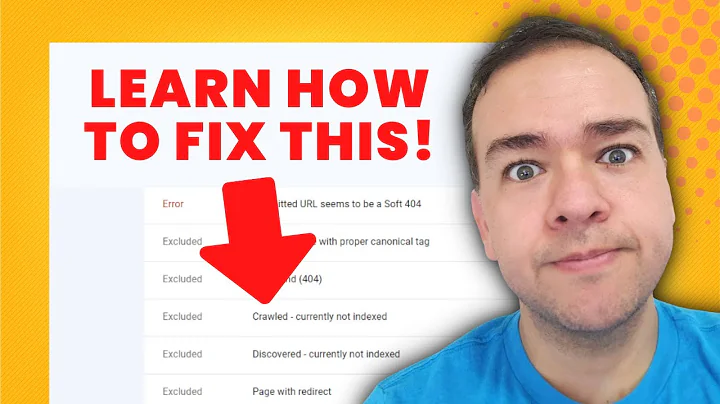Revolutionizing Search: The Impact of Google's Hummingbird Algorithm
Table of Contents
- Introduction to Google's Hummingbird Algorithm
- The Impact of Hummingbird on Search Engine Optimization (SEO)
- The Evolution of Google's Algorithm: From Page Rank to Hummingbird
- The Flaws of the Page Rank System
- Abuses of the Page Rank System
- The Short-Term Fixes and Gaming Tactics of SEO Professionals
- Google's Fixes: The Panda Update
- Google's Fixes: The Penguin Update
- Google's Fixes: Hummingbird and the Semantics of Search
- The Future of Search Engine Optimization
Google's Hummingbird Algorithm: Revolutionizing Search
In today's digital landscape, where businesses heavily rely on search engine optimization (SEO) to achieve better visibility and traffic, understanding the impact of Google's algorithms is crucial. One such algorithm that has significantly shaped the SEO landscape is the Hummingbird algorithm. In this article, we will delve into the intricacies of Hummingbird and explore how it affects your business. We will examine its evolution from Google's early algorithms, like Page Rank, to its current state as a semantic search engine. Brace yourself for an enlightening journey that will equip you with the knowledge to adapt and thrive in the ever-changing realm of search engine optimization.
Introduction to Google's Hummingbird Algorithm
Before we dive into the specifics of Hummingbird's impact on SEO, let's take a brief trip down memory lane and explore the early days of search engine algorithms. When Google first emerged, its algorithm revolved around Page Rank, a groundbreaking concept that assessed a website's value based on the number of links pointing to it. The basic principle behind Page Rank was simple: more links equaled better rankings. It was a reliable measure of social approval, indicating that a website was producing valuable content that people wanted to share.
The Flaws of the Page Rank System
While Page Rank revolutionized search engine results by prioritizing popular websites, it had an inherent flaw – it only considered links from peers or websites, not the actual visitors. This flaw led to the abuse of Page Rank and the birth of unethical SEO practices. SEO professionals began partaking in manipulative link-building tactics, such as buying links, spamming websites with irrelevant comments, and creating low-quality content networks. Moreover, on-page optimization became focused on keyword repetition rather than creating valuable content for users.
Abuses of the Page Rank System
The rise of these manipulative SEO practices signaled a need for Google to take action. To combat the proliferation of low-quality content and unethical link-building, Google introduced two major updates: Panda and Penguin. The Panda update focused on penalizing websites with low-quality content, leveraging a special algorithm to identify repetitive or poorly written articles. Websites employing these tactics witnessed a significant drop in their rankings, while reputable websites gained more authority.
Google's Fixes: The Panda Update
The Panda update aimed to address the issue of bad quality content by reducing the rankings of websites that produced low-quality articles, images, or any form of content lacking value. Google accomplished this by identifying common trends in bad quality articles and developing an algorithm to predict and penalize them. While Panda penalized many websites indiscriminately, Google continually works to refine the algorithm, ensuring that it rewards high-quality content and provides users with the best search experience.
Google's Fixes: The Penguin Update
Following the Panda update, Google introduced the Penguin update, which targeted websites employing unethical link-building practices. These practices included spamming the internet with irrelevant links, buying links, or participating in link exchange schemes. Penguin levied penalties on websites with low-quality links, further diminishing their rankings. To regain their rankings, website owners had to remove these bad links and demonstrate their commitment to ethical SEO practices.
Google's Fixes: Hummingbird and the Semantics of Search
As Google continued to refine its algorithms, it recognized that ranking websites solely based on peer popularity had its limitations. With the introduction of Hummingbird, Google embarked on a new paradigm of search – one that prioritized semantics and context. Hummingbird is a semantic search engine that aims to understand user queries and provide more relevant results, even if they don't include the exact keywords. This shift in approach signifies a departure from the link-oriented system and a greater emphasis on factors like social sharing and page quality.
The Future of Search Engine Optimization
With Hummingbird at the forefront, the future of SEO lies in understanding the nuances of semantic search and creating valuable content that resonates with users. Marketers must strive to align their strategies with the evolving algorithms and focus on user-centric approaches. As Google continues to refine its search engine, it is clear that the days of outdated SEO tactics centered around manipulative practices are numbered. The key to success lies in providing exceptional content, building genuine connections, and staying ahead of the ever-changing search landscape.
In conclusion, Google's Hummingbird algorithm serves as a wake-up call for businesses and marketers to shift their focus from short-term gains to long-term sustainability. By embracing the principles of semantic search and prioritizing user-centric approaches, businesses can establish themselves as authority figures in their respective domains. The future of search engine optimization lies in innovation, adaptability, and ethical practices – a future where businesses can thrive by providing valuable content and enhancing the search experience for users.
🌐 Resources:







